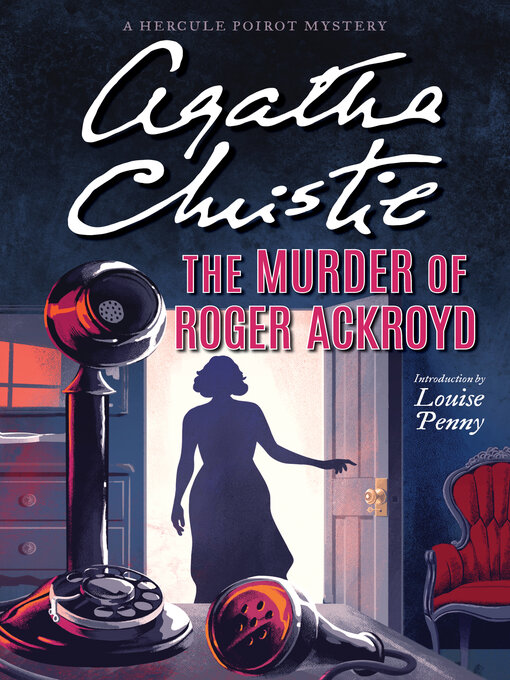
Agatha Christie’s job, as a writer of Detective Novels, was, paradoxically, to hide the criminal – much like a spiv with the card game, Hide the Lady. Even though the punter aims to find the card – and makes wild guesses (based, of course, on superior talents) the side-show spiv will win every time – maybe it’s just a trick, a slight of hand, but we come back again and again in the vain hope of putting one over on the expert.
Not much hope, I’m afraid!
‘The Murder of Roger Ackroyd’ has to be Ms Christie’s ultimate deception – it certainly had me fooled right ‘til the end. No matter where I looked, the Lady was hidden.
Up pop all the usual suspects – and with a Christie you know if someone is accused, it isn’t them. One by one she knocks out everyone – and I do mean everyone! Surely she hasn’t had a total stranger do the murder?
No, the wrist works it’s magic: Poirot, shows you the superiority of his little grey cells and you loose again.
And I can’t tell you the secret – I won’t spoil the thrill.
What I will say is it is beautifully done.
Agatha Christie manages here to exploit the genre ‘Detective Novel’ in a way which relies on the reader’s knowledge of all the usual tricks, of lulling them into a false sense of security and then flipping them onto their backs. It is a book to be read rather than a story to be told – and despite the amazing craftsmanship of Granada television’s version with David Suchet, it fails precisely because this is not only a story but an exploration of the relationship between reader and writer.
Poirot has gone into retirement – Hastings is away in Argentina, Scotland Yard is not involved. A local rich man is the victim of murder (the only one, incidentally in the story – the TV version needed to double the number, bring Inspector Japp in where he wasn’t wanted and simplify the plot by removing a couple of key characters). There is blackmail and love, lost wedding rings and phone calls in the night.
Poirot, after throwing marrows around, one of which lands in his neighbour’s garden and smashes open at the feet of the doctor, is brought in on the sidelines – he hardly features in fact. There is a chair out of place, a man arrested in Liverpool, and the delicate feelings of the local constabulary all to be taken into consideration.
And a lot of consideration is being done by a local tribe of Miss Marples. Nosey old women pop up in profusion – and references to the greatest detective of all times can’t be avoided: The story is retold by the Doctor whose shoes were splattered – a Watson to Poirot’s Holmes.
As you would expect, it is the twist and turns of the plot that matter rather than deep characterisation, but to suggest the book is shallow as a result would be to deny the profound insight Ms Christie shows into the psychology of her readership.
The term masterpiece has been justifiably applied to the book – and I fully concur.
Just make sure you read the book before you see the film!


No comments:
Post a Comment